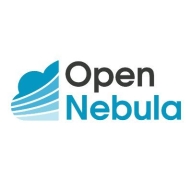


Freshservice and OpenNebula compete in the IT service management and cloud management space. Freshservice appears to have the upper hand with extensive feature offerings and ease of use, while OpenNebula stands out for its cloud management and cost-effectiveness.
Features: Freshservice offers robust incident management, comprehensive analytics, and seamless mobile app integration. Its workflow automation simplifies complex processes, aiding in better ticket routing and resolution. OpenNebula excels with its lightweight design, ease of customization, and flexibility in cloud management, making it an efficient choice for businesses looking to manage multiple environments with ease.
Room for Improvement: Freshservice needs improvement in customization options, enhancing its reporting capabilities, and better integration with third-party tools such as Microsoft Outlook. OpenNebula requires enhancements in documentation, expanding its feature set and improving REST API support to streamline integration and network provisioning.
Ease of Deployment and Customer Service: Freshservice offers versatility with deployment across public and private clouds, making it adaptable to different environments, though customer service experience varies with some facing delays. OpenNebula primarily operates in on-premises environments with some public cloud integration and generally satisfactory support, although the feedback is mixed.
Pricing and ROI: Freshservice provides flexible tiered pricing plans, which may be perceived as costly, especially outside of the American market, yet offers a notable return on investment. OpenNebula, being primarily open-source, stands out for cost-effectiveness, often being free or lower in price, offering substantial value compared to competitors like VMware.



IBM Turbonomic offers automation, planning, and right-sizing recommendations to streamline resource management, improve efficiencies, and optimize costs across virtualized environments and cloud platforms.
IBM Turbonomic is valued for its capability to optimize resource allocation and monitor virtual environments efficiently. It facilitates automated decision-making in VM sizing, load balancing, and cost optimization for both on-premises and cloud deployments. Users can leverage insights for workload placement, ensure peak performance assurance, and effectively right-size across VMware and Azure. The ongoing transition to HTML5 aims to improve visual and navigational ease, while expanded reporting features are anticipated. Opportunities for improved training, documentation, and integrations enhance platform usability and functionality.
What Are the Key Features?In finance, IBM Turbonomic aids in maintaining platform efficiency during market fluctuations. Healthcare organizations leverage its capability for resource optimization during high-demand periods to enhance patient care support. Retailers use it for planning in peak seasons, ensuring resources align with fluctuating demand to maintain performance continuity.
Freshservice is an intelligent, cloud-native service management solution. It provides efficiency and agility through AI to create a contextual and intelligent experience. The solution also empowers employees to work whenever and wherever they need to work. Freshservice powers integrations and workflows at the enterprise scale, building upon an open platform and marketplace with connectors and APIs that you can extend and customize.
Freshservice Features
Freshservice has many valuable key features. Some of the most useful ones include:
Freshservice Benefits
There are many benefits to implementing Freshservice. Some of the biggest advantages the solution offers include:
Reviews from Real Users
Below are some reviews and helpful feedback written by PeerSpot users currently using the Freshservice solution.
A Senior Helpdesk at a non-profit says, “I like the workflow automation capabilities, where based upon certain actions, it will automatically go and route tickets to a particular person. It is fairly user-friendly.”
PeerSpot user Cesar Q., CIO at Grupo Kasto, mentions, “The analytics are very good. The solution offers very nice incident management. The overall functionality of the product is excellent. The change management is helpful. They have an agent that we installed in every single asset. We have the inventory for all assets automatically. Contract management is very valuable for us as an IT department, as we have the information for every single computer across the company. We are starting to use the project management aspects right now. We have different projects and we have all the information in the same solution, in the same place. It makes everything more centralized and easier to access. The user interface is very nice and the solution is easy to use. You don't need to be an expert in order to navigate around and use the product. You don't need to read a lot of manuals in order to figure everything out. It's pretty intuitive.”
A Network Analyst at a real estate/law firm shares, "We find its ability to track what's going on with each request very valuable. We are also able to merge ticket requests and assign them to different groups in the company. We have another department that uses the same system."
OpenNebula provides the most simple but feature-rich and flexible solution for the comprehensive management of virtualized data centers to enable private, public and hybrid IaaS clouds. OpenNebula interoperability makes cloud an evolution by leveraging existing IT assets, protecting your investments, and avoiding vendor lock-in.
OpenNebula is a turnkey enterprise-ready solution that includes all the features needed to provide an on-premises (private) cloud offering, and to offer public cloud services.
We monitor all Cloud Management reviews to prevent fraudulent reviews and keep review quality high. We do not post reviews by company employees or direct competitors. We validate each review for authenticity via cross-reference with LinkedIn, and personal follow-up with the reviewer when necessary.